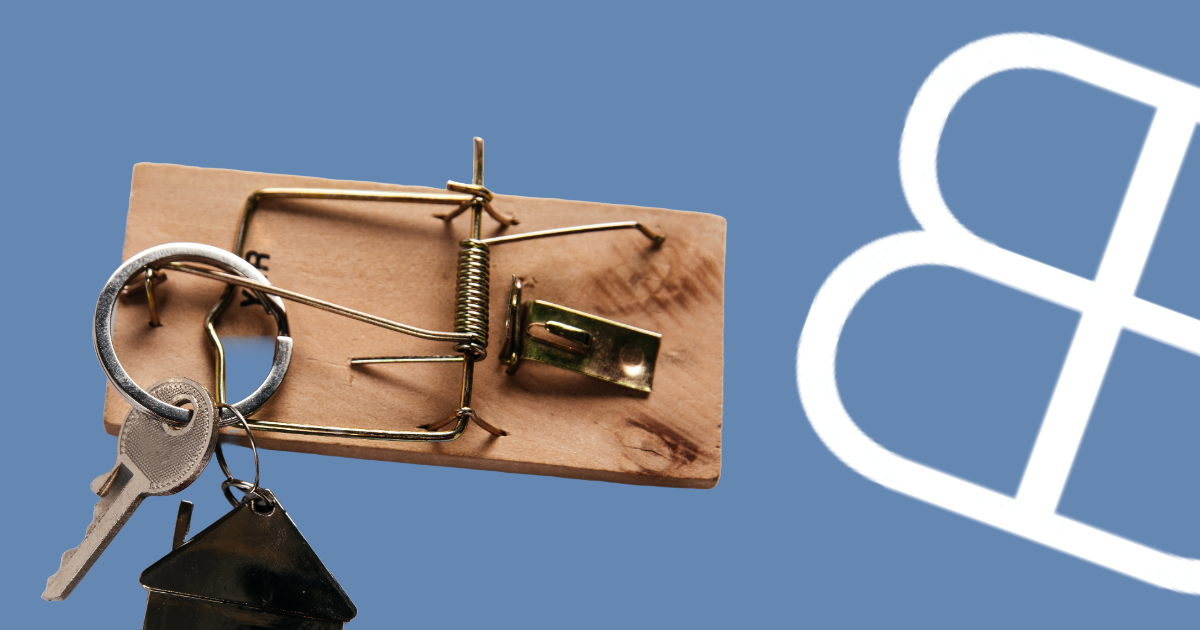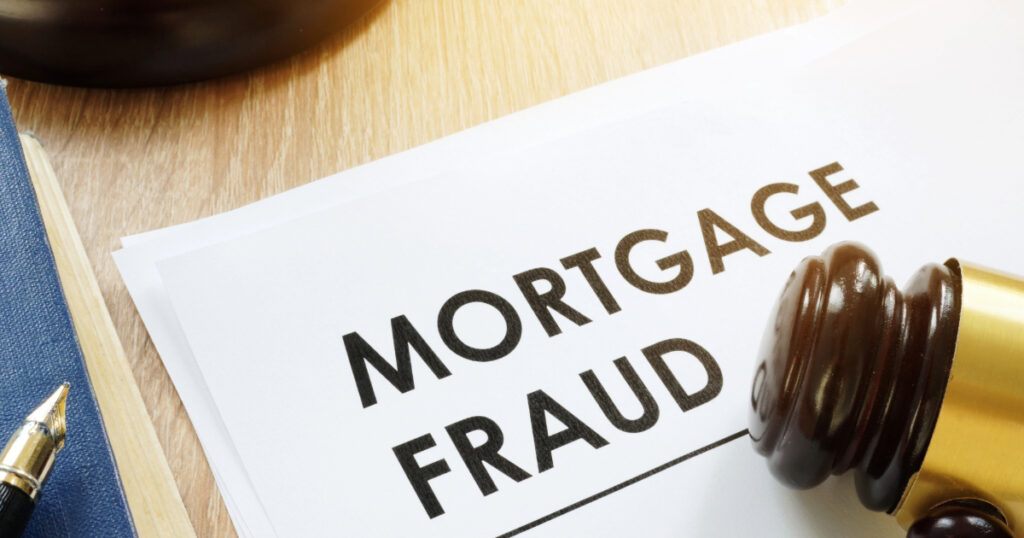10 Mortgage Scams to Watch Out For

Due to the highly regulated environment in the UK, mortgage scams are rare compared to overseas. However, mortgage fraud and fraud in general is increasing each year and it can be easy to fall victim to some of the scams we discuss below.
The great news is there are a number of ways you can protect yourself from mortgage scams and these steps are simple to follow. The best way to avoid mortgage scams is to use a reputable and regulated mortgage broker.
Let’s discover some of the clever ways criminals are scamming people in the UK.
Common Mortgage Scams
According to the National Crime Agency, fraud is prevalent in the UK and makes up over 40% of all recorded crimes. Mortgage fraud and mortgage scams are rarer, however, when victims fall prey to these scams, because of the sums of money involved, it can be life changing.
Unregulated Equity Release Brokers
If you are looking for an Equity Release product you should ensure your broker or Equity Release provider is authorised and regulated by the FCA. You should also ensure the broker or lender is a member of the Equity Release Council (ERC). The ERC is a voluntary organisation that brokers and lenders subscribe to.
As part of this membership, they agree to uphold high ethical standards when providing Equity Release products and advice. For example, a lender that is also an ERC member will offer a No Negative Equity guarantee, meaning you will never owe more than your property value.
Unfortunately, around 10% of the current Equity Release providers are not a member of the ERC and offer products that could leave your next of kin with a higher debt amount than your property value.
Hidden Fees
Unlike Boon Brokers, a large proportion of mortgage brokers charge fees for the advice they provide.
The FCA stipulates all fees must be transparent and made clear at the outset. This does not stop unscrupulous brokers from adding on additional fees or putting hidden fees into their fee agreements. These fees range from processing fees, application fees and in some cases even fees for sending you documentation.
Ensure you ask your broker for a complete breakdown of the fees they charge and calculate whether the fees you are being charged represent value for money.
Unregulated Mortgage Advisers
The FCA charges all mortgage brokers a levy to be regulated. If your mortgage broker is directly regulated this will be paid directly to the FCA. If your mortgage broker is part of a mortgage club/network they will pay a fee to the mortgage club/network which is passed on to the FCA.
These fees are reasonably high, and some brokers avoid paying them. When a broker does not pay a fee, they are automatically unauthorised to submit a mortgage application and you will have no protection if they misadvise you or scam you in any way.
Bad Credit Mortgage Brokerages
Obtaining a mortgage with a poor or adverse credit score is more difficult compared to people with good credit scores. There are a handful of predatory companies that operate under the guise of a ‘Bad Credit Mortgage Brokerage.’
These companies are not in fact mortgage brokers, and instead operate as lead generation companies for actual mortgage brokers. They do not have the same rules as a mortgage broker and can charge fees just for passing your details onto a broker.
Lead generation companies make money from both clients and brokers, as brokers often pay for these mortgage leads. To avoid using this unnecessary middleman, approach a mortgage broker directly and check the brokerage is listed as authorised on the FCA website.
Stamp Duty Scams
A very common scam currently is the Stamp Duty scam. This scam is operated by criminals and shady accountancy firms who offer you a way to reduce your stamp duty for a fee.
Sometimes, the criminals will ask you to pay the stamp duty to them up front and simply disappear. Other times an actual accountancy firm may enrol you in a tax avoidance scheme.
With the latter, you may reduce your stamp duty liability in the short term but end up owing the full amount when HRMC catches up to you plus any financial penalties. In a worst-case scenario, you could be prosecuted and sent to prison.
Scam Broker Calls
The most common mortgage scam is criminals pretending to be mortgage lenders or brokers. These imposters trick people into discussing their mortgage and disclosing their personal information including bank account details.
To protect yourself, only speak to genuine callers by either directly calling your broker or lender. You should also ensure you are not disclosing personal information over the phone. A bank for example will never call you and ask for your account details.
100% Mortgage Acceptance Scams
These scams prey on those who are desperate to obtain a mortgage and have been declined elsewhere.
The Financial Conduct Authority has clear advertising guidelines in place for mortgage brokers and providers, however, some slip through the net or are unregulated to begin with.
There is no such thing as a 100% acceptance rate on a mortgage. There will always be people who are currently unable to obtain a mortgage. The best bet for anyone struggling to get a mortgage now, is to speak to a mortgage broker and create an action plan to improve future mortgage chances.
Free consultations are offered in the UK.
Get Started NowEstate Agency Scams
Unlike mortgage brokers, Estate Agents are not highly regulated. This means there are a number of scams Estate Agents use to con you out of money.
The most common tactic Estate Agents use to get more money from you is to call you after you have made an offer and tell you they have received a higher offer on the property. In many cases this is a cynical ploy to try and get you to increase your offer price.
In rare cases, there may be another offer on the table and a good estate agent will disclose some more detailed information about that offer. If in doubt though, stick with your initial offer and see if the Estate Agent changes their tune over the next few days.
The Buyer Protection Hussle
You may have noticed some listings on property websites have convoluted buyer protection schemes advertised by the Estate Agent. Normally these consist of putting a down payment on the property or paying fees for an ‘enhanced service.’
The fact is, Estate Agents have little control over the buying process and any number of factors can derail a property purchase. In nearly all cases where these schemes are offered, your holding deposit is non-refundable if unforeseen circumstances arise, and you have to back out of the sale.
The Estate Agent then keeps that money and charges the next buyer a fee, making it a very lucrative practice when you consider 1 in 3 property sales fall through before contracts are exchanged.
Mortgage Deposit Scams
Lenders operate strict guidelines about what can and cannot be used for your mortgage deposit.
Unfortunately, there are many unsecured loan companies offering loans for mortgage deposits knowing full well that many lenders will not allow you to use this finance.
If the deposit does not meet your lender requirements, you will still need to pay off the loan you took for your deposit. Sometimes, the interest rates on products marketed for mortgage deposits are very high, leaving borrowers in financial hardship.
How to Avoid Being Scammed
Most scams utilise three factors to be effective:
- Need or desperation
- Time limitations
- Exploiting your private data
If you are desperate to get a mortgage and finding it difficult you should speak to a reputable mortgage broker. The news they give you might not be good in the short term, but any mortgage broker who is good at their job will help you budget and plan to get a mortgage in the future.
If you encounter any kind of urgent payment or fee, the likelihood is that you are being scammed. A mortgage has clearly defined fees and timeframes, you will never be asked to pay a fee you were unaware of in the next 24-hours for example.
When you make mortgage enquiries online, you will quite often be required to provide some personal information. To mitigate the risk of providing personal information, check how your data will be used and who will be using it.
You will NEVER need to provide your bank account information as part of an initial mortgage enquiry.
Mortgage brokers will need Direct Debit Details but only at the Full Mortgage Application stage of the process.
By being aware of how scams work, you can begin to spot them with relative ease. Some of the scams in this article are not criminal, however they are bending ethical guidelines to get you to part with your hard-earned money.
If you are being charged a fee for any service related to buying a property, ensure you read all the terms and conditions and then factor in a worst-case scenario situation. Is there a chance you will lose a lot of money? Is the service genuine? Is the service worth the amount of money you are being asked to commit?
What Our Clients Have To Say
What to Do If You Have Been Scammed
If you have been a victim of fraud or a scam, there are several steps you can take.
If the company you are dealing with is authentic and not a criminal enterprise, you should first raise a complaint with the company. If your complaint fails to get the resolution you require, you can escalate it in most cases.
If you feel you have been unfairly treated by an Estate Agent, you can report them to the National Trading Standards Estate Agency Team (NTSEAT).
If you feel a regulated mortgage broker has behaved improperly you can use the Financial Ombudsman Service (FOS). If you believe the behaviour is extremely serious, you can also make a direct complaint to the Financial Conduct Authority (FCA).
The Financial Ombudsman Service works alongside the Financial Conduct Authority and your complaint will be shared between both institutions in cases where there has been a serious breach of guidelines.
Lastly, if you have been scammed by someone acting in a criminal way, you should make a report to your local police using their non-emergency number.
Police are inundated with fraud complaints and often they will not have jurisdiction to tackle the crime, especially if the company who has scammed you is based overseas. You should double up your police report by notifying Action Fraud which is a fraud reporting and advisory service.
Speak to a Reputable Broker
In the various scenarios outline above, you will be adding a substantial layer of protection by dealing with a reputable broker and asking them advice throughout the buying process.
For example, if during the buying process you are asked to provide a fee to an Estate Agent, you can call your broker and ask them how to proceed. Your broker will then evaluate the information you are providing them and advise you of the best course of action.
Boon Brokers is a Whole of Market Mortgage, Insurance and Equity Release Brokerage. Boon Brokers is authorised and regulated by the Financial Conduct Authority. Boon Brokers provides fee free mortgage advice.
Contact Boon Brokers to discuss your mortgage and book your initial consultation today.
Gerard BoonB.A. (Hons), CeMAP, CeRER
Gerard is a co-founder and partner of Boon Brokers. Having studied many areas of financial services at the University of Leeds, and following completion of his CeMAP and CeRER qualifications, Gerard has acquired a vast knowledge of the mortgage, insurance and equity release industry.Related Articles








